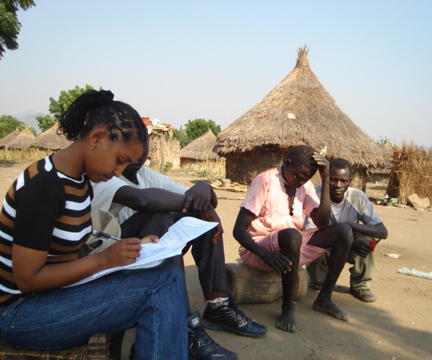Throughout history, immigration has been an important factor affecting countries in many aspects such as their economic, political and social conditions. Now that we are witnessing an era in which wars and persecution have driven more people from their homes than at any time (Edwards, 2016), investigating the economic effects –more often, the costs– of immigrants and refugees on destination countries, as well as the health and safety aspects of the issue, is quite popular in academia. The case has also been widely discussed from a humanitarian aid perspective.
However, these studies unfortunately cannot go beyond placing refugees in a passive position or just giving limited, if not any, insight about their activities, as they are represented mostly as the caretaker. There is no doubt that humanitarian organisations are doing a great job on the ground in many countries. Especially, United Nations High Commissioner for Refugees (UNHCR) Innovations Service motivates organisations and individuals to change their perception about humanitarianism and to enable a more dynamic system. But, to what extent can we expect that it is sustainable and healthy for a refugee to depend on humanitarian aid, to stay idle and to become somewhat isolated from the society? Actually, UNHCR and some other refugee organisations occasionally emphasize the potential of refugees for becoming economically self-reliant, and moreover, for contributing to economic development and innovation in receiving countries. However, there is neither much attention given nor action taken in the academia, business world and political arena in terms of supporting or examining the economic activities and more specifically the self-employment of refugees.
In many cases, given the right enabling environment, refugees have proved that they can go beyond creating jobs for themselves through entrepreneurship. Such as the case of Sant’Alessio in Italy, where many businesses and shops have opened by the arrival of refugees and also created jobs for locals (Canal, 2017). Likewise, Ugandan Asian refugees who arrived in 1972, have contributed to the UK economy significantly by establishing businesses in different sectors such as pharmaceuticals, financial services, and engineering (Ware, 2016). It can also be drawn from such examples that entrepreneurship serves as a great tool for integration as it fosters communication between refugees and locals. To investigate these aspects of the issue, there is a need for more extensive and up-to-date research about displaced people and how they can engage in entrepreneurial activities in their destinations.
Understanding the unique characteristics of host countries and entrepreneurial refugees in order to tailor programmes to local circumstances by different actors of the society, entrepreneurship could be an economic and social solution to the refugee crisis. It is exciting to see emerging startup incubators for refugees and organisations like Techfugees, a social enterprise building tech solutions for and with refugees in many countries, organising hackathons and providing support for refugee entrepreneurs.
But where do we start? We can begin by engaging governments, policy makers and business people. Different stakeholders in the refugee entrepreneurial ecosystem are playing a role but it has not been significant yet. How can we create a healthier public perception towards the issue? How can we all contribute to the construction of an inclusive and collaborative international community?
Let us hear your thoughts and tell us what you think!
Ayşe Seyyide Kaptaner is pursuing her PhD at Birkbeck. Her research explores how refugees engage in entrepreneurship, and accordingly, contribute to innovation and economic development in different host countries. The main aim is to demonstrate how refugees can transfer their skills, abilities and motivations into business and to examine the factors affecting their entrepreneurial activities. Using a mixed embeddedness framework (Kloosterman et al., 1999) socio-economic positions of immigrant entrepreneurs will be examined within the politico-institutional environments in their host countries.

